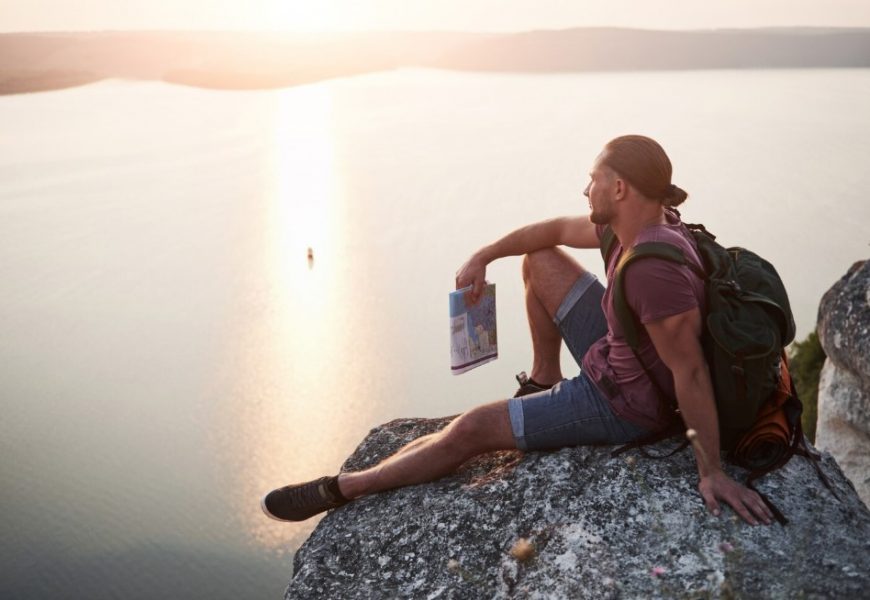Exploring Travel Beyond the Surface
For much of history, travel has been associated with leisure, luxury, or a temporary escape from the demands of daily life. A holiday to the beach, a visit to a historical landmark, or a weekend getaway to a new city often symbolized relaxation and enjoyment. Yet as global culture evolves, travel is being redefined—not just as a pleasurable activity, but as a profound tool for personal growth. Increasingly, journeys are becoming transformative pathways that challenge individuals to go beyond their comfort zones, engage with the world in raw and unfiltered ways, and emerge with deeper self-awareness and resilience.
What distinguishes travel from other forms of learning or growth, such as reading, formal education, or professional training, is its immersive and unpredictable nature. A book can teach you about cultural traditions, but navigating those traditions firsthand—ordering food in a language you do not yet understand, or participating in a ritual foreign to your upbringing—demands flexibility, patience, and humility in ways that theoretical knowledge cannot replicate. These lived experiences serve as mirror and mentor, forcing travelers to refine their problem-solving abilities, improve adaptability, and cultivate empathy when faced with differences.
Travel also cultivates emotional resilience. Missed buses, unfamiliar currencies, long layovers, or unexpected encounters are not inconveniences to avoid but lessons in endurance and adaptability. Such moments test one’s ability to remain calm, think creatively, and adjust plans without losing sight of the joy of exploration. Over time, these experiences strengthen the capacity to handle ambiguity and uncertainty—qualities indispensable in both personal and professional life.
Perhaps most importantly, travel sparks moments of self-discovery. When removed from the routine of everyday life, individuals are confronted with versions of themselves that routine often hides: the patient negotiator, the bold adventurer, or the quiet observer. These revelations, born from navigating unfamiliar landscapes, create defining memories that resonate long after the trip has ended. Unlike vacations framed only as breaks from work, transformative travel highlights a deeper human desire to learn directly from the world—to be shaped by it, to reflect on it, and to integrate these experiences into a more purposeful life perspective.
From Tourists to Seekers
This evolving approach to travel is particularly visible among younger generations. Millennials and Gen Z, in particular, are less satisfied with the surface-level achievements of tourism: taking photographs in front of landmarks, buying souvenirs, or collecting passport stamps. Instead, many individuals are seeking experiences that foster personal evolution. The rise of volunteering abroad programs, immersive cultural exchanges, solo backpacking adventures, meditation retreats, and wilderness expeditions reveals a collective reimagining of what travel is supposed to achieve.
In these activities, the emphasis shifts from entertainment to transformation. Volunteering in a rural community allows travelers to connect with lives very different from their own, gaining perspective on privilege, interconnectedness, and gratitude. Solo travel teaches independence and self-reliance, sharpening intuition while also revealing the importance of relationships and human connection. Meanwhile, mindful practices like yoga retreats or long treks in nature invite travelers to detox from the noise of digital life, turning the journey inward as much as outward.
These emerging trends highlight a broader cultural shift: people increasingly see travel not as something “extra,” but as an essential tool for lifelong learning and holistic well-being. Just as academic courses shape intellectual growth, travel shapes adaptability, gratitude, perspective, and emotional intelligence. In today’s fast-changing world, where cultural literacy and flexible thinking are invaluable, these lessons are far from frivolous—they are foundational.
Moreover, the impact of such journeys does not fade once the luggage is unpacked. Insights gained while traveling are being consciously integrated into careers, relationships, and mental health practices. Professionals find themselves better equipped to manage diverse teams; friends and partners discover deeper empathy and patience in their relationships; individuals learn to check stress with mindfulness practices discovered abroad. In many cases, travelers return home not just with mementos, but with a clearer vision of how they want to contribute to their communities and, in some cases, to the world.
The transformation of travel from a form of leisure into a catalyst for personal growth reflects a deeper human longing for expansion—for experiences that stretch the limits of identity and understanding. As people venture beyond tourist attractions and lean into cultural immersion, they discover that the most powerful souvenirs are not tangible at all, but internal: a wider perspective, a sturdier sense of self, and a renewed ability to connect across differences.
In the twenty-first century, travel is no longer simply about where we go, but about who we become along the way. It is an evolving form of education, one that reshapes values, nurtures resilience, and encourages more purposeful living. In this light, airplanes, backpacks, passports, and maps are not just tools of exploration—they are instruments of growth, guiding individuals toward deeper versions of themselves and richer connections with the world around them.



